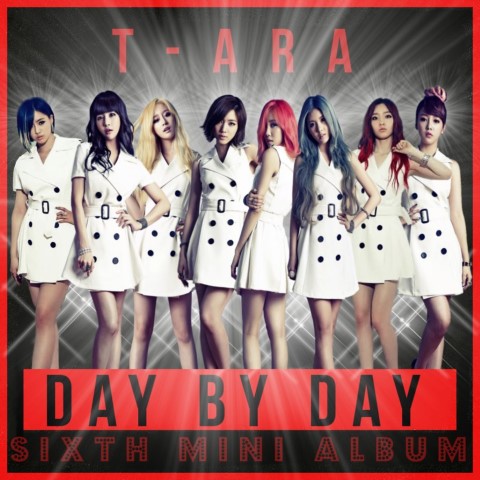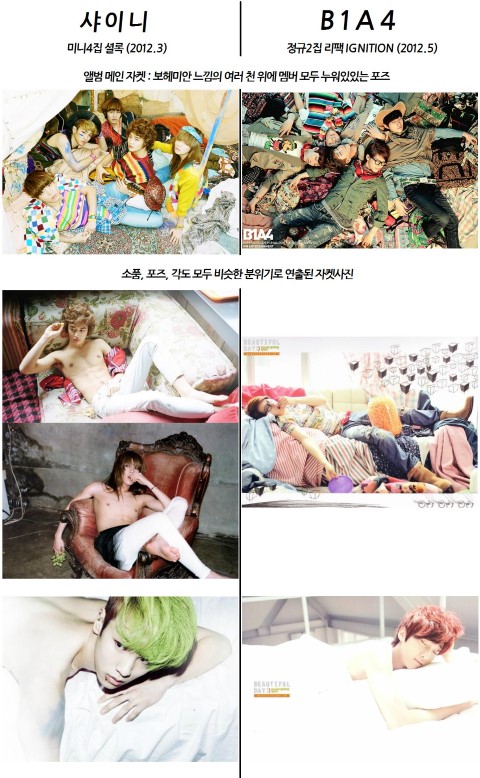K-pop is also 'similar' to Son Tung M-TP many times
Recently, public opinion has spent a lot of ink on the case of "Son Tung M-TP plagiarism", the Vietnam Center for Music Copyright Protection established a council of prestigious musicians to evaluate the song "Crazy someone will come back" by Son Tung M-TP and came to the conclusion: Son Tung M-TP plagiarized.
Coincidentally, while Korean entertainment music has a large influence on Vietnam's popular music scene, recent cases of alleged plagiarism involve reusing beats from Korean songs without permission.
Let's take a look at the Korean entertainment music market and a few other cases, to better understand the dark side of a music market in which some people want to quickly become famous by "inheriting" other people's works without permission, or using "composition methods" that professional domestic musicians and even foreign musicians never do.
K-pop is making its impact in many countries but that doesn’t mean it doesn’t face its own internal turmoil. K-pop makes its impact in many places and ends up with its music being borrowed and stolen. But K-pop itself has done the same thing many times.
The recent Son Tung M-TP incident is just the latest development in the issue of K-pop speaking out about plagiarism. A few months ago, there was an even more controversial case when famous American singer, Meghan Trainor, whose song All About That Bass climbed to number 2 on the Billboard Top 100 in the US, was accused of “plagiarizing” the song Happy Mode by Korean group, Koyote, released in 2006.
The famous music magazine Stereogum wrote that K-pop is making a fuss to cover up the fact that they themselves are the culprits of many cases of "stealing" other people's music. Of course, not just once.

T-ara's song Day By Day has the same beat and flute as Britney Spears' song Criminal.
Where there is a hit, there is a subpoena.
Four years ago, in a positive move or perhaps because of “no other choice” due to considerable pressure from public opinion, the Korean Committee for Culture, Sports, Tourism, Radio - Television & Communications announced a list of 20 K-pop songs that were involved in plagiarism and stealing other people’s ideas. To announce this list, the committee and the Korean Music Copyright Association worked quite hard to find a peaceful solution. Because the basis for considering it as plagiarism when these suspicions have been continuously breaking out for more than a decade is not an easy matter. How are plagiarism of melody, harmony, beat, sample… handled? After careful analysis, the list was announced. The important thing that the parties wanted to bring up was that these 20 songs had earned more than 1.7 million USD in royalties for the “self-proclaimed owners” when, in fact, it should have belonged to someone else.
The biggest names in K-pop were revealed. All of them were famous people. From MC Mong with Letter To You; Hyori with I'm Back and Swing; Lee Seung Ki with Mask, to Son Dambi with Saturday Night; Lee Seung Chul with Scream; and even CNBlue with Loner; G-Dragon with Heartbreaker… All of these songs were accused of having beats, melodies, and harmonies similar to other songs.
Specifically, the song Bing Bing Bing by FT Island has an interlude that is very similar to Five Colors In Her Hair by the British band McFly. Singer G-Dragon (of Big Bang) sang Heartbreaker exactly like Right Round by Flo Rida. It is worth mentioning that Heartbreaker is considered the hit song of the year in Korea, but the evidence that was presented for analysis was completely unfavorable to G-Dragon. That is not to mention the album cover of Heartbreaker is also considered to have "mistakenly taken the idea" from the album cover of Let It Come Down by the British band Spiritualized, released in 2001. Sony, the publisher and responsible for bringing G-Dragon's music to the US, later officially declared this song as plagiarized and sent a warning letter to G-Dragon's management company YG Entertainment. Along with that, Sony announced that it would not "license" the distribution of 3 songs: Heartbreaker (G-Dragon), Butterfly (of 2NE1), With You (of Big Bang) in the US market. It was a painful blow to the K-pop giants at the time.
Many K-pop fans later strongly protested this decision, they did not want to believe that their idols plagiarized. But the beat and melody that was given could not defend their point of view. At that time, a newspaper said that "Where there is a "hit", there is a subpoena". K-pop is heavily affected by plagiarism.

The success of K-pop is facing many challenges. The "hotter" it is, the easier it is to get involved in negativity, of which plagiarism of music, dance, style... is an increasingly common occurrence.
Plagiarism fever
The 20 songs mentioned above are just the tip of a huge iceberg. For many years, and up to now, plagiarism suspicions are still hot in the Korean press and music forums.
K-pop has prepared itself for a long enough time to become the Hallyu wave (Korean wave), knocking out many influences in other countries. But their music has not really kept up with the rapid changes in the hot market that almost demands a hit song every day. K-pop therefore has to change itself constantly and do they have enough talent and time to compose "hits" like eating? And so, "compositions influenced by...", "plagiarism", "plagiarism of beats"... are not uncommon in this country.
Remember that when the internet became the great repository, the free beat libraries became a giant pie for anyone who wanted to create. So big that it split the difference and one person knew but not the other. Supply was greater than demand. So it created professional beatmakers both legal and illegal and it “gave birth” to the problem that still remains unsolved: Copyright.
In just two years, 2012 and 2013, K-pop faced dozens of plagiarism accusations. Perhaps these were the two peak years of plagiarism being dissected here. For example, the song Day By Day from the album of the same name by the girl group T-ara has a beat and flute that "looks like a copy" of Britney Spears's Criminal. Or the song Dream Girl by the group SHINee was once loudly accused of plagiarizing the song Vuelve by the famous Puerto Rican singer, Luis Miguel. All because the melody line has many similarities but the beat and sample are quite different.
Not long ago, the Japanese 2CH online community accused SNSD's The Boys of "plagiarizing" the Macross Frontier anime with the song Pink Monsoon by May'n. Listening to it, it is true that these two songs have many similarities in melody and beat.
However, the more accusations are raised, the more objections are raised. As in the case of SNSD, the excuses given were that “Japanese fans were too tired and worried about the Korean wave so they tried every way to put them down. The song The Boys was mixed by famous American producer Teddy Riley, so why would he trade his reputation by stealing?”. Arguments were given but professional objections were not seen.
Or like the song Dream Girl by SHINee, the producer later used all professional arguments to analyze but they still had to admit that there were similarities in the first melodies.
Singer IU was very popular last year with the song The Red Shoes but was immediately accused of plagiarism from Nekta's song Here's Us. But unlike many others, IU and her company jumped in to defend themselves, saying that although the song is similar, the harmony and rhythm are different, and the chorus and verse 1 have nothing in common with Here's Us. And if it's that "different", it can't be considered plagiarism.
If we list more, there will be a lot of evidence about plagiarism suspicions in K-pop, but just like in Vietnam, the matter of plagiarism, references, or influence is also very shaky because no one can determine. In an article to prove that K-pop music is often "plagiarized" worldwide, Seoul Beats also had to admit that: "Even though we joined the WTO and there is a consensus among member countries that copyright infringement is illegal and will be punished. But in reality, the vicious cycle of harmony, melody, background music... is enough to create a binding institution? Everyone is vague about this and it seems that no one understands the correct standards for plagiarism. Even in the US, the law must consider many aspects such as influence, the number of beats used (if any), the source of exploitation... before making a conclusion. The boundary between inspiration and imitation is really fragile. The only way is to require producers to be responsible and K-pop must be the same."
Mr. Jin Sungho, an official of the Korean Culture, Sports, Tourism, Broadcasting & Communications Committee, said: “Even though it is difficult, we still have to actively find those who steal other people's music. They pocket the money but do not sweat a drop.” In the list given by this committee, there are songs that have been paid up to 250,000 USD in copyright. That number is certainly still the dream of many others and to get it, many people will continue to take risks. K-pop is not the only case.
According to VNE






